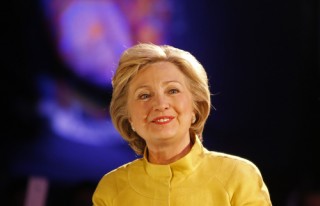 Three weeks before the Democratic National Party is set to crown Hillary Clinton as their nominee, the presidential hopeful voluntarily made her way into J. Edgar Hoover building for an interview with FBI agents about her use of private email. No doubt she was ready. No doubt the interview was purposely scheduled on a holiday weekend so as to minimize publicity. And, no doubt, her attorney David Kendall and his aides have been finding every possible way to prepare Clinton for this interview. But what might not be so obvious is that the conservative watchdog group Judicial Watch, which has been aggressively pursuing the server issue over the last several months, might have actually helped Clinton during the FBI interview process.
Three weeks before the Democratic National Party is set to crown Hillary Clinton as their nominee, the presidential hopeful voluntarily made her way into J. Edgar Hoover building for an interview with FBI agents about her use of private email. No doubt she was ready. No doubt the interview was purposely scheduled on a holiday weekend so as to minimize publicity. And, no doubt, her attorney David Kendall and his aides have been finding every possible way to prepare Clinton for this interview. But what might not be so obvious is that the conservative watchdog group Judicial Watch, which has been aggressively pursuing the server issue over the last several months, might have actually helped Clinton during the FBI interview process.
Yes, the group may have inadvertently and unintentionally aided Clinton during the three and half hour interview. Let me explain. For months, the legal watchdog group has been pursuing multiple FOIA lawsuits against the State Department in federal court. They are seeking to determine whether the State Department acted in good faith in responding to FOIA requests about Clinton’s use of the private email server. As part of discovery, earlier this year, federal judge Emmet Sullivan allowed them to depose several of Clinton’s top aides under oath. In an effort to bring more transparency to the American public, over the last several weeks, Judicial Watch has released hundreds of pages of transcripts from those depositions. We have learned how top Clinton aides including Huma Abedin, Cheryl Mills, and Patrick Kennedy responded to critical questions about how and why the email server was set up (though they all strangely don’t recall much about what happened.) Many of the same questions asked by Judicial Watch attorneys were likely asked by the FBI.
As top attorneys pointed out to us, those transcripts could serve as a gold mine in terms of preparation research for Clinton’s attorneys. FBI agents are always on the lookout for inconsistencies in statements. So when they interviewed Clinton on Saturday, they were likely looking for any noticeable differences between what Clinton said about the email server, and what her aides told them in previous interviews. We know that Clinton was among the last to be interviewed as part of the federal probe. We also know that over the last several weeks, the FBI has interviewed many of Clinton’s aides on multiple occasions. It would be risky for Cheryl Mills or Huma Abedin to discuss what the FBI asked them or how they answered. But nothing prevents Clinton or her attorneys from reading the transcripts that were publicly released as part of a separate civil lawsuit in preparation for the FBI interview. In fact, it would be good legal practice. Interestingly, attorneys for Cheryl Mills fought to prevent the video deposition of Mills from being released. However, Mills’ attorney Beth Wilkinson had no problem with Judicial Watch releasing the written transcript.
Elkan Abramowitz, a high profile white collar attorney, told LawNewz in a previous article the only way Clinton could get in trouble during this interview is if she lied. He doubts that she did. Now, with the added bonus of hundreds of pages of transcripts, she might have been even more prepared. We’ve reached out to David Kendall to ask him about the interview, but have not heard back.
“Let me just repeat what I have related for many months now. I never received nor sent any material that was marked classified,” Clinton told NBC’s Chuck Todd during an interview Sunday morning, in which he questioned her about the FBI interview. “Out of respect for the process that the department is conducting,” she would not elaborate much about the FBI interview.